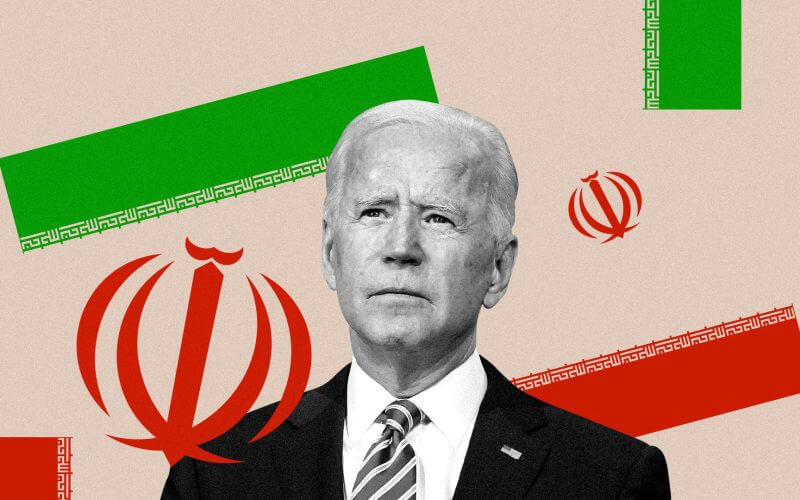With the Biden administration and its European allies poised to revive the 2015 Joint Comprehensive Plan of Action (JCPOA) with Iran, many have pointed out the various measures yet to be addressed and fully resolved. In particular, the issue that American and European officials have slowly pushed to the side has been around their citizens detained in Iranian prisons. In recent days, families of many detained Americans have once again made their grievances known, this time by protesting outside the White House, calling for the Biden administration to meet with them and to secure the release of their loved ones prior to entering into any deal.
One of the jailed Iranian Americans, Emad Sharghi, an Iranian American venture capitalist, has been unlawfully jailed in Iran for four years. According to reports, Sharghi was sentenced to a 10-year prison term by the Islamic Republic, accusing the individual of spying and trying to flee the country. U.S. Secretary of State Antony Blinken took to Twitter to state that Sharghi, like many other prisoners, has been treated as a “political pawn.” Blinken has called on Iran to “stop its inhuman practices and release Mr. Sharghi,” echoing sentiments from U.S. special envoy for Iran, Robert Malley, who has also called for the release of Sharghi and other unlawfully detained Americans.
Another detained Iranian American, Morad Tahbaz, a conservationist, was sentenced to a 10-year jail term by the Islamic Republic in November of 2019, for being in contact with the U.S. Not only is Tahbaz an American citizen, but he is also a British national and has remained in jail even though the two countries do share diplomatic relations. Malley has stated that the U.S. government agreed with the British that they would take the lead in the talks around the issue of U.S. dual nationals like Tahbaz, prompting outrage from Tahbaz’s family.
During a recent rally, the daughter of Morad Tahbaz, Tara Tahbaz told news outlets that the jailed Americans were not just “another name on a list” and that they were somebody’s “father, son, husband.” Ms. Tahbaz further exclaimed that she has hope the U.S. will do everything to the prisoners released and finally reunite them with their families who have done everything and anything to get U.S. and European officials to secure their freedom.
Other Iranian Americans such as Baquer Namazi and his son Siamak Namazi, both of whom have been the longest-held Iranian Americans imprisoned in Iran, still remain in custody. Both the Namazis have been sentenced to Evin Prison for 10 years and have had support from friends and family members, who have gone to the U.S. government to get them released.
Since the creation of the Islamic Republic of Iran, the Islamic regime and its terrorist proxies have engaged in arresting American and European citizens for political use, charging them with unsubstantiated claims of spying for the CIA or Israel, spreading lies of the regime’s actions, and creating unrest. The Islamic Republic has been able to use these prisoners and political pawns to obtain demands from the West either through economic or military means.
During the rise of the Hezbollah in the early 1980s, one of the Islamic Republic’s most well-known terrorist proxies in the Middle East, kidnapped various American and European officials and journalists, prompting these countries to negotiate with the Islamic Republic, which secured the release of prisoners and monetary concessions to the regime.
Recently, the Iranian Intelligence Ministry declared that the European nationals it had detained were sent by what they described as “foreign conspirators'” to spread chaos in the country. According to Iranian state TV, the two did not reveal their nationalities and were accused of “organizing chaos and social disorder.” The arrest comes as Iran’s judiciary announces it will go ahead with the execution of a Swedish-Iranian academic who has been imprisoned since 2016.
European officials involved have called on the regime to release these nationals but have not enacted any repercussions against the Islamic Republic for refusing to do so. Iranian officials believe that by arresting these nationals, the European Union (EU) will provide more concessions than the deal already provides.
Over the past few years, the Islamic Republic has continued to to arrest American and European nationals, using them to obtain concessions from both the U.S. and Europe. In 2015, when the Obama administration decided to engage in negotiations with the Islamic Republic over its nuclear program, the regime decided to leverage its political prisoners to obtain more concessions than was being offered to them. While President Obama and his team urged Tehran to release American and European nationals from imprisonment, Iranian officials have deflected this issue, promising to handle it soon.
The Biden administration and its envoy team still face the same issue today with Iran, as the regime has not given up its political prisoners and arrested several European nationals despite facing verbal ultimatums from the Secretary of State and the rest of the international community. Many of these prisoners face cruel and harsh imprisonments in places like Evin, where the regime’s security forces brutally harass individuals.










